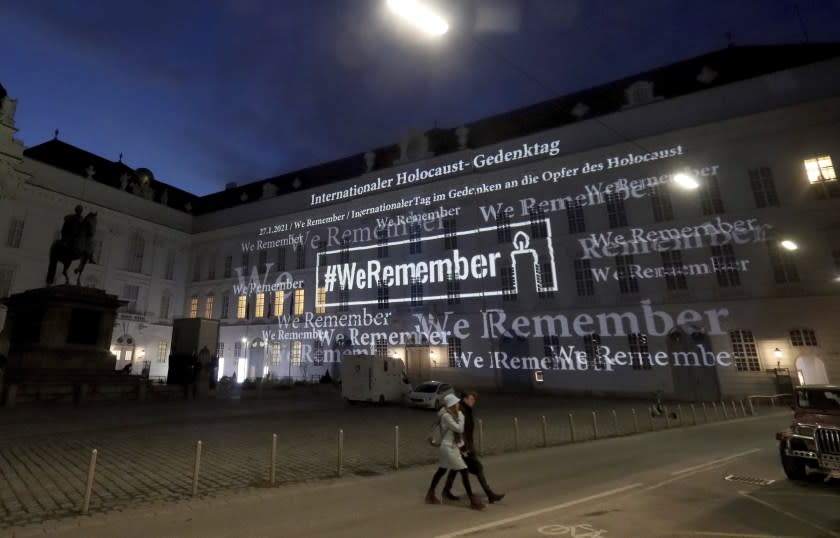Letters to the Editor: How using the Holocaust as a political cudgel is a form of denial

To the editor: Joshua M. Greene reminds us that the Holocaust must remain rooted in discrete fact if remembering is to have meaning and its victims honored. ("'Never forget' commands us to remember Holocaust horrors, not just the bravery of survivors," Opinion, April 4)
Understanding the history, sources and uniqueness of antisemitism is also necessary to understanding the Holocaust — a "final solution" to a "problem" people and the culmination of thousands of years of Judaism hatred and institutionalized demonization, dehumanization, segregation, expulsion and murder of Jewish people.
The old conspiracist hatred informing the Holocaust remains and flourishes, which is why universalizing the Holocaust is a form of denial, appropriation and erasure.
Whenever "Nazi" is applied to political opponents, Holocaust imagery is employed to score political points. When prisons and detention centers become concentration camps, and COVID-19 health mandates are Nuremberg laws, the Holocaust and its victims are annihilated and forgotten all over again.
Jo Perry, Studio City
..
To the editor: The author suggests that calling survivors of the Holocaust "heroes who embody all that is noble in the human spirit" does a disservice to the 6 million Jews who did not survive.
Atrocities are not a zero-sum game. The survivors indeed deserve credit, which takes nothing away from those who were annihilated.
We survivors carry forward the spirit of all those who suffered in the Holocaust by being the first in line who remember and by carrying on in their name.
Tom Schaumberg, Santa Barbara
..
To the editor: "Never forget" is not just an appeal to passively memorialize one of the most horrific events in human history, but an exhortation to act proactively to prevent similar tragedies in the future.
We need to comprehend how a country with a long and rich cultural history like Germany could turn into a killing machine that destroyed two-thirds of the Jewish population in Europe.
We also need gain some understanding of our own national evils, including the genocide of Native Americans, depriving Japanese Americans of their liberty and property, the oppression of African Americans and the never-ending cycle of racism in this country.
Before the last living witnesses of the Holocaust disappear, we have to embed their memories into our conscience and that of future generations in order to avoid repeating the sins of the past.
Ted Carmely, Sherman Oaks
..
To the editor: Thank you for publishing Joshua Greene's reminder that details matter when discussing the Holocaust. Three such details overlooked in Greene's brief summary bear mentioning.
First, there was mass industrialization of death in the service of a single, overarching goal to the point that it undermined Germany's ability to effectively wage war against the Soviet Union.
Second, an entire society was bureaucratized to run that industrial machine with flawless efficiency by otherwise faceless "ordinary German" functionaries (one aspect of the "banality of evil" term coined by Hannah Arendt).
Third, often overlooked is Jewish resistance to their seemingly pre-ordained fate. When commemorating the 78th anniversary of the Warsaw Ghetto Uprising on April 19, we observe that a determined band of resistors — especially when supported by otherwise less vulnerable neighbors — in the face of certain death can, by example, help pass the spark of humanity to future generations.
Paul Scheer, Mar Vista
This story originally appeared in Los Angeles Times.

